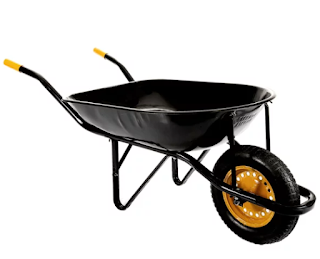5 EXEMPLOS DE PROJETO DE JUNTAS
Como ilustração prática, são mostradas algumas soluções correntes de projeto.
A solução do exemplo A refere-se ao encontro do pavimento com uma ponte rodoviária. O exemplo 8 trata de um trecho reto de estrada; a solução envolve o emprego de barras de transferência e de ligação, O terceiro caso, esquematizado no exemplo C, é um cruzamento de vias diferentes

|
Referências Bibliográficas
1. PORTLAND CEMENT ASSOCIATION (PCA). Joint design for concrete pavements. Skokie, 1961. 5p. (HB 21).
2. ___________. Joint design for concrete highway and street pavements. Skokie, 1975. 13p. (1S059.02P).
3. CONSIDERA TIONS in the selection of slab dimensions. American Concrete Institute, Proc., Detroit, 28(5): 433-54, Nov. 1956.
4. WESTERGAARD, H. M. Stresses in concrete pavements computed by theoretical analysis. Publlc Roads, Washington, D.C., 7(2): 25-35, Apr. 1926.
5. _________. Analysis of stresses in concrete roads caused by varíatíons ín temperature. Publlc Roads, Washington, D.C., 8(3): 201-15, May 1927.
6. PICKETT, G. & RAY, G. k. Influence charts forconcrete pavements. American Society of Civil Engineers, Trans., New York, 116 (Paper n.2425):
49-73,1951.
7. TELLER, L. W. & SHUTHERLAND, E. C. The structuraldesign ofconcrete pavements. Pubic Roads, Washington, D.C., 16(8-10), 1935; 17(7-8), 1936; 23(8), 1943.
8. KELLEY, E. F. Appllcations ofthe results of research to the structuraldesign of concrete pavements. Public Roads, Washington, D.C., 20 (5):
83-104; 20(6): 107-26, JuI./Aug. 1939.
9. TONS, Egons. A theoretical approach to design of a road joint seal. In:
ESTADOS UNIDOS. Highway Research Board. Concretepavement; subbaseandjointconstruction. Washington, DC., 1959. p.20-53. (BuI. 229).
10. OLDER, Clifford. Highway research in Illlnois. American Society of Civil Engineers, Proc., New York, 50:175-217, Feb. 1924.
11. ESTADOS UNIDOS. Híghway Research Board. Road test one-MD. Washington, D.C., 1952. 149p. (Special Report n.4).
12. ESTADOS UNIDOS. Highway Research Board. The AASHO road test; pavement research. Washington, D.C., 1962. p.161-203. (Special Report n.61 -E).
13.__________ Joint spacing in concrete pavements; 1O-year reports on six experimental projects. Washington, D.C., 1956. 1 59p. (Research Report 17-B).
14. HARR, M. E. & LEONHARDS, G. A. Warpíng stresses and deflectians in concrete pavements. Híghway Research Board, Proc., Washington,
D.C., 38: 286-320,1959.
15. _________& _________. Warping stresses and deflections in concrete pavements; part li. Highway Research Board, Proc., Washington, DC., 39:157-72,1960.
16. COLLEY, Bert & HUNPHREY, H. A. Aggregate interlockat joints in concrete pavements. In: ESTADOS UNIDOS. Highway Research Record. Design performance and surface properties of pavements. Washington, D.C., 1967. p.1-18. (BuI. 189).
17. TELLER, L. W. & CASHELL, H. D. Performance of dowels under repetítive loading. Public Roads, Washington, D.C., 30(1): 1-24,Jun. 1958.
18. SCHULTZ, R. J. Shape factorinjoínt design. Civil Engineeríng, ASCE, New York, 32(10): 32-6, Oct. 1962.
19. COOK, J. R & LEWIS, Russel M. Evaluation of pavementjoint and crack sealing materiaIs and practices. Washington, D.C., Highway Research Board, 1967. 40p. (NCHRP Report n.38).
20. WESTALL, W. G. Methods of formíng joints in portland cement concrete pavements. In: ESTADOS UNIDOS. Highway Research Record. Joints and sealants. Washington, D.C., 1965. p.1-10. (BuI. 80).
21. PITTA, Márcio Rocha. Projeto de sub-bases para pavimentos de concreto. São Paulo, ABCP, 1983. 35p. (ET-29).









0 Comments:
Postar um comentário